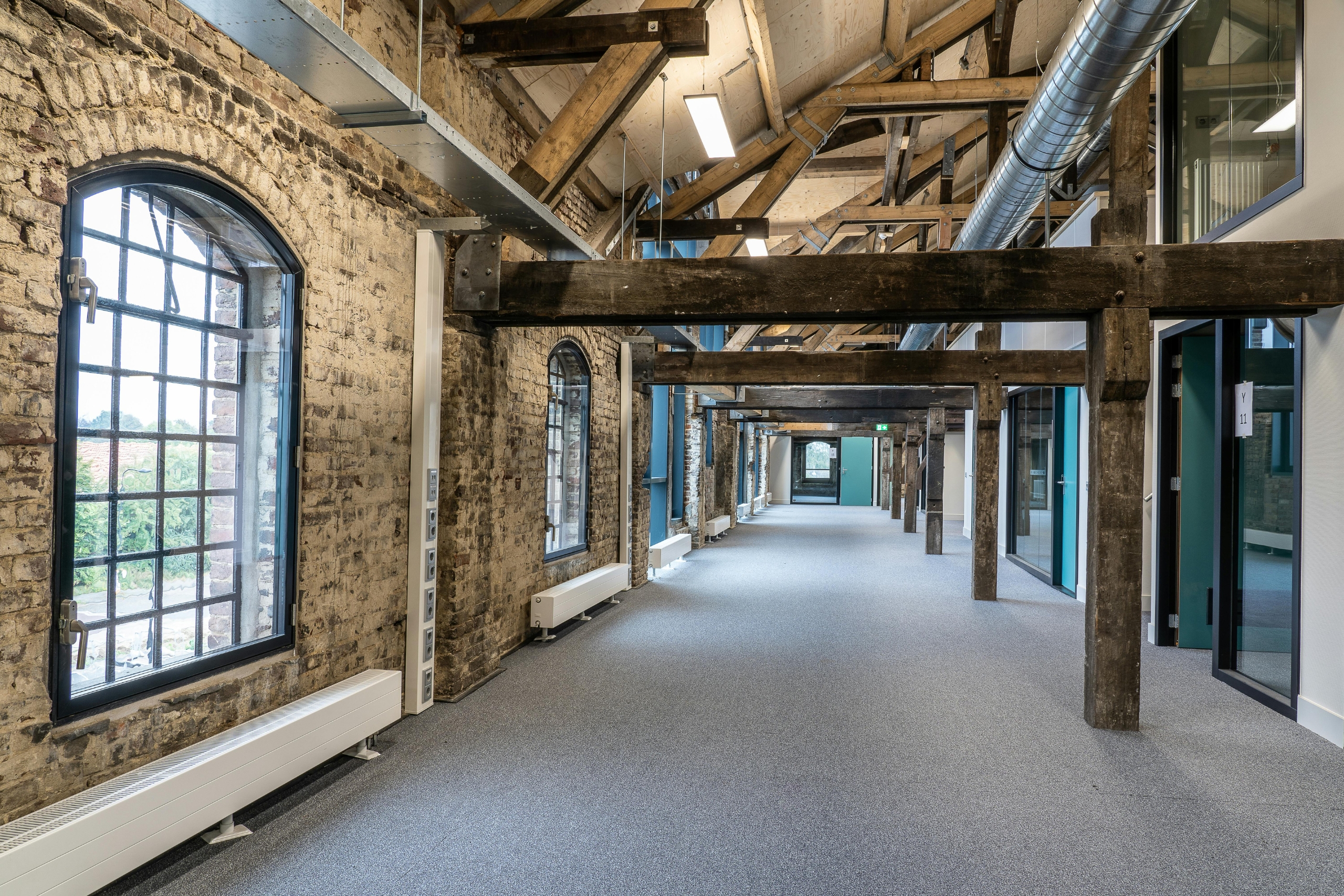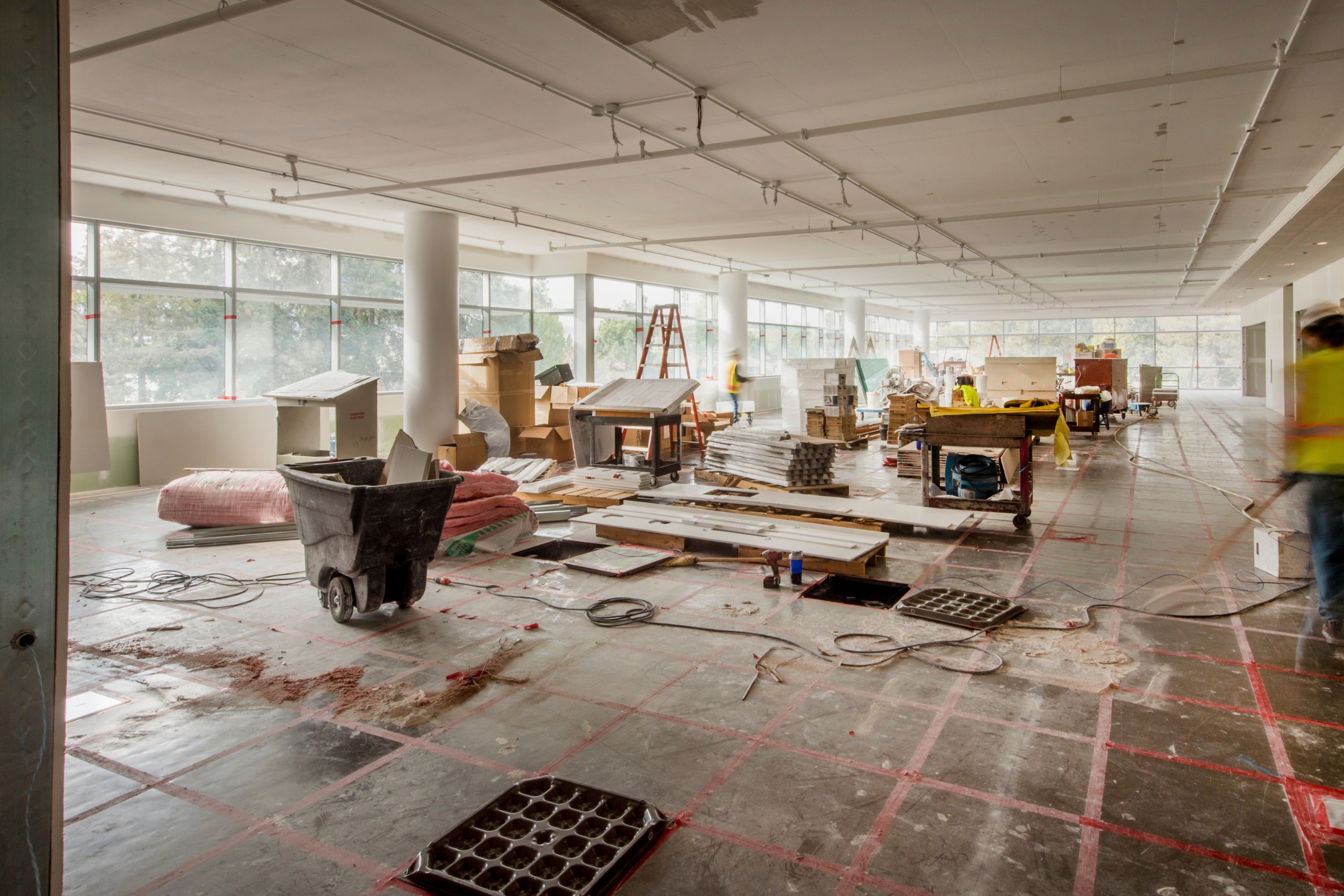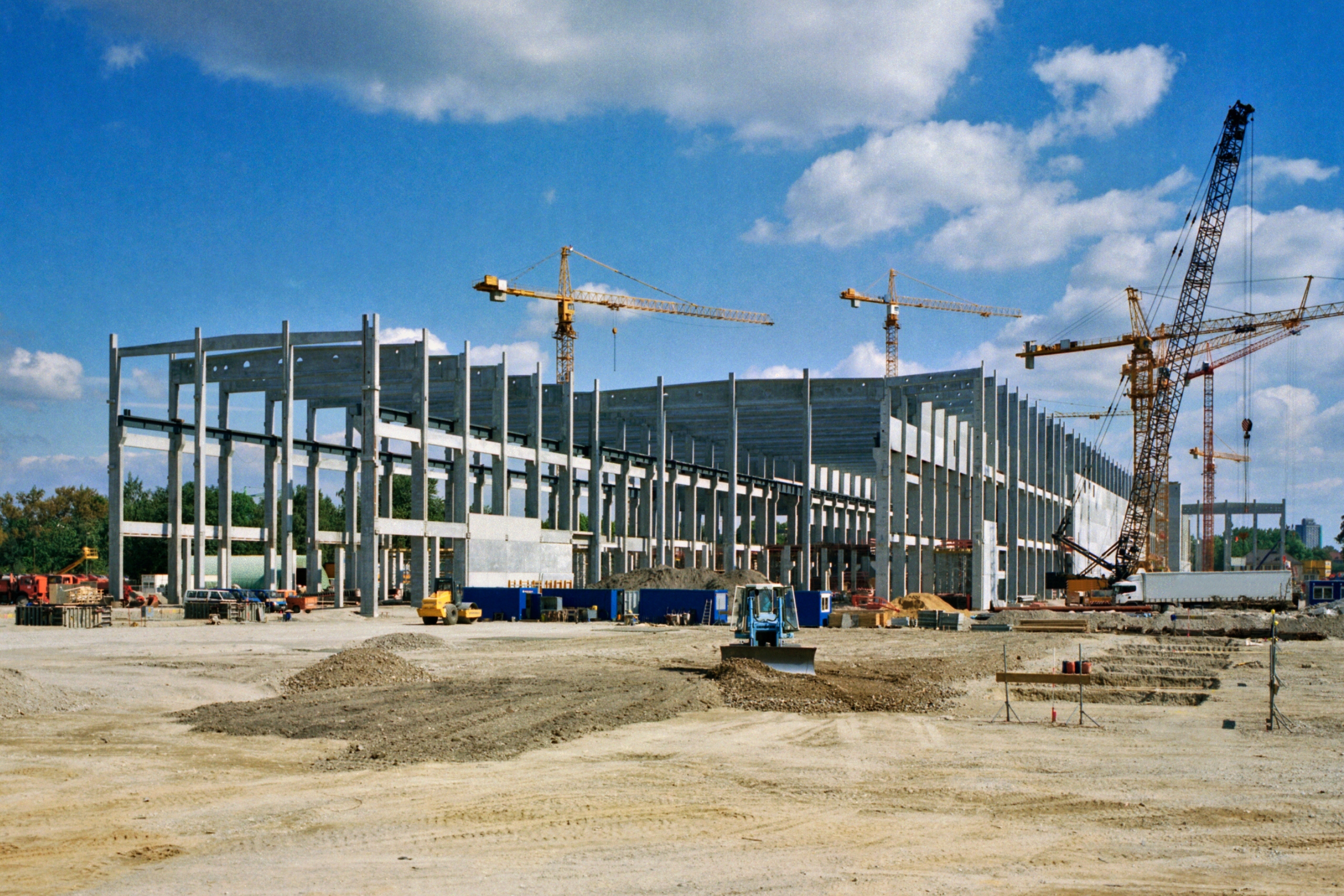Renovating historic buildings is a special endeavor that connects us to the past while preparing these structures for the future. Whether it’s an old church with beautiful stained glass or a vintage home with intricate woodwork, these structures tell stories of a bygone era. The charm and character they offer are unmatched, but they also require thoughtful care to keep them standing strong. Omaha boasts many such buildings, and efforts to restore them can enhance their aesthetics, safety, and functionality. Restoring historical buildings in Omaha comes with its own set of challenges and considerations. The city’s unique climate and local regulations mean that careful planning is crucial. Renovators must balance preserving original features and ensuring the building meets modern standards. This process involves detailed inspections, securing necessary permits, and planning carefully to honor the building’s history while preparing it for modern use. Assess the Building’s Condition Before diving into restoration, a thorough understanding of the building’s current state is key. This step ensures that all aspects needing attention are identified upfront. Here’s a simple checklist to get started: – Inspect the structural integrity: Look for issues with the foundation, walls, and roof. Check for signs of wear or significant damage that could impact the building’s stability. – Identify areas needing urgent repair: Prioritize parts of the building that pose immediate safety risks or could lead to further damage if not addressed promptly. – Understand historical value and elements to preserve: Decide which historically significant features need maintenance. This can include unique architectural details, original materials, and specific design elements. An example to consider is an old theater in downtown Omaha. Upon inspection, you might find that while the exterior brickwork stands firm, internal structures like the ceiling beams might need immediate attention. Preserving the theater’s original seating and stage structure will add to its charm once restored. Conducting such a detailed assessment lays the foundation for a successful restoration by ensuring no critical element is overlooked. Obtain Necessary Permits and Approvals Before you can begin transforming a historic gem into a revitalized space, securing the right permits is a must. Historic buildings come with specific regulations that ensure their preservation, so starting with this step is smart. First, research local guidelines to understand the requirements unique to Omaha. This might involve reaching out to municipal offices or checking online records for details specific to your project. Once research is complete, work on obtaining the required permits. These are crucial for any structural changes, ensuring compliance with both local and historical standards. It’s helpful to connect with local preservation societies that can provide guidance and support during this process. Their expertise not only smooths the path but also helps maintain the integrity of the building’s historic significance. Plan and Budget for the Restoration Planning ahead makes renovation significantly easier and more effective. Begin by crafting a detailed restoration plan. This involves mapping out the entire project from start to finish, covering everything from design ideas to the timeline for completion. Consider what elements you need to preserve and what to modernize for safety. Budgeting accurately is equally important. Consider potential surprises like hidden damages or the need for specialized materials that match the building’s original structure. Here’s a way to structure your budget planning: – Create a comprehensive budget list: Include labor, materials, permits, and unexpected costs. – Prioritize spending: Focus on areas with immediate needs before moving to aesthetic improvements. – Allocate funds for contingencies: Set aside a portion of your budget for unforeseen expenses. A solid plan and budget help you avoid unwanted delays and keep the project on track. Choose the Right Materials and Techniques The materials and techniques used in restoration are critical to a project’s success. Selecting materials that match the building’s original construction maintains its historical charm and integrity. This might mean sourcing specific types of wood, stone, or other materials that were used when the building was first constructed. Proper techniques are just as crucial. Using methods that align with historical building practices ensures that renovations don’t disrupt the structure’s authenticity. At the same time, it’s wise to consider modern alternatives that offer sustainability and efficiency, without compromising the original design. Hire Experienced Professionals Working with experienced contractors is vital for successfully restoring historic structures. These professionals understand the intricacies involved in preserving historical elements while integrating modern standards. Specialized craftsmen can handle intricate details, ensuring that restoration work respects the building’s original craftsmanship. PC Construction’s expertise in managing such projects can guide you through the complexities of historical restoration. Their experience ensures that each aspect of the building receives the attention it deserves, allowing for a seamless blending of past and present. Restoring a historic building is more than just preserving bricks and beams—it’s about safeguarding the stories and heritage embedded within them. A thoughtful approach that includes careful inspection, acquisition of permits, and detailed planning delivers the promise of revival while respecting tradition.
Steps to Successfully Plan Your Office Building Construction
Planning an office building is a major undertaking with countless details that need to be managed effectively. If you’re in Omaha and considering office building construction, laying out a comprehensive plan from the beginning is key. This process ensures not only that the construction runs smoothly but also that the final result meets your business’s needs and goals. From budgeting to selecting a prime location, each step decides the success of your project. Now, let’s explore why your planning process is so important. A well-thought-out plan addresses all necessary aspects, minimizes potential risks, and ensures the project stays on track. Especially in Omaha, where local regulations and specific building standards must be met, a solid plan isn’t just helpful—it’s necessary. This section will guide you through the initial steps to help you prepare effectively for your office building venture. Initial Planning Steps The first step in planning your office building construction in Omaha involves setting clear goals and objectives. Determining the purpose of the building and the specific features it should include helps guide all subsequent decisions. Ask yourself what you want the building to achieve and what needs it should fulfill for your employees and clients. Having a clear picture will streamline the planning process. Next, choose the right location. Omaha offers a variety of sites that could suit different business needs. When selecting a location, consider accessibility, nearby amenities, and potential for future growth. It’s also important to review Omaha’s zoning laws and construction regulations to ensure your building complies with all legal requirements. Budgeting might not be the most exciting part of planning, but it’s crucial. Establish a realistic budget that accounts for all anticipated costs, from permits and materials to labor and unexpected expenses. This will help keep financial surprises at bay and allow for smoother decision-making down the line. Remember, a well-planned budget often helps avoid costly overruns. By focusing on setting clear objectives, carefully selecting a location, and establishing a practical budget, the foundation for a successful office building project in Omaha is effectively laid. Taking these initial planning steps ensures you’re prepared for the tasks that lie ahead, setting your project up for success. Design and Pre-Construction Phase Once you’ve laid the groundwork with a solid plan and a clear budget, it’s time to focus on design and pre-construction milestones. This phase involves bringing your vision to life on paper with the help of experts. Working with knowledgeable architects and designers makes a huge difference. They’re adept at translating your objectives into a functional and beautiful design that aligns with both your budget and goals. Aim for a design that not only looks great but also enhances workflow and productivity. Legal requirements are another critical aspect. In Omaha, obtaining the necessary permits and approvals from local authorities is non-negotiable. This step might seem fuelled with paperwork, but it ensures that all regulatory standards are met, preventing future setbacks. Ensuring all documentation is in order before construction starts simplifies future inspections. Bringing in a skilled construction management team is invaluable during pre-construction. Their expertise in coordinating various elements saves time and money and helps keep the project on schedule. This kind of team also offers insights into materials and methods that could help optimize your budget. Construction Phase Here comes the actual building process. The construction phase is where all the planning takes physical form. Creating a detailed project timeline before breaking ground can guide the process significantly. By sticking to this timeline, you maintain momentum and avoid unnecessary delays. During this phase, prioritizing quality control and safety standards should be a core focus. Construction sites have inherent risks, so applying rigorous safety protocols protects workers and minimizes potential liability. Regular site visits and monitoring keep quality under check, ensuring the building meets the designed criteria. Communication plays a key role in keeping stakeholders informed and involved. Whether it’s updating them about progress or addressing concerns, steady communication ensures everyone remains on the same page, reducing the likelihood of misunderstandings or errors. Final Steps and Bringing Your Vision to Life As your office building nears completion, final inspections hold paramount importance. Addressing any deficiencies found during these inspections ensures no stone is left unturned, setting the stage for a smooth project handover. Planning the move-in process for employees and equipment involves coordination but marks the exciting phase where your building comes alive. Closing out the project includes settling any remaining financials, ensuring that contractors and suppliers have been paid, and all necessary documentation is secured. Reflecting on the project from concept to completion validates the effort and careful planning invested. Recapping the steps taken—starting with defining goals, choosing the right Omaha location, budgeting, working through design, construction, and finalization—highlights the importance of each phase. By adhering to a well-structured plan, you can see your office building project flourish, serving as a testament to thorough preparation and strategic management.Completing your office building project in Omaha demands thorough planning and expert execution from start to finish. For a seamless experience and to ensure your vision turns into reality, consider enlisting professional help. To learn more about how PC Construction can assist with your office building construction in Omaha, feel free to contact us. Our team looks forward to supporting you in creating a dynamic and productive workspace.
What Is Construction Management and Why It Matters
Construction management plays a key role in turning blueprints into fully realized structures. Imagine a conductor orchestrating a symphony; that’s how a construction manager handles a project, ensuring every part works in harmony. But why does this process hold such importance, especially in places like Omaha? With its broad landscapes and unique building needs, having a skilled construction manager isn’t just a bonus, it’s a necessity. In Omaha, where projects might range from downtown office spaces to expansive distribution centers, the efficiency of construction management directly impacts the success of the build. It’s all about making sure projects run smoothly, are completed on time, and stay within budget. It’s more than just managing; it’s steering the project so that it aligns with expectations and local regulations. What Is Construction Management? At its core, construction management is the planning and coordination of a project from start to finish. Imagine it as the backbone of any construction project. This discipline ensures that every phase, from initial designs to the final nail, is executed efficiently. The role of a construction manager mirrors that of a team captain, guiding each aspect of the build and making decisions that benefit the project holistically. A construction manager wears many hats, overseeing everything from scheduling and budgeting to quality control and team management. Here’s a breakdown of their key responsibilities: – Planning: Developing detailed plans and timelines for project tasks. – Coordinating: Acting as the go-between for architects, engineers, contractors, and clients. – Budgeting: Managing finances to keep the project within the allocated budget. – Quality Assurance: Ensuring that building standards and safety codes are met at every step. By keeping these elements in sync, a construction manager ensures that each part of the project builds on the next, much like fitting together pieces of a puzzle for a complete picture. Through effective management, potential issues are addressed proactively, setting the stage for a successful project outcome. Benefits of Construction Management in Omaha Construction projects in Omaha come with unique challenges and advantages, making the role of construction management even more significant. One of the primary benefits is the streamlined process it brings to the table. By having a skilled construction manager, projects are not only organized efficiently but also move forward without unnecessary delays. This streamlined approach results in better use of resources and more precise adherence to timelines. For businesses in Omaha, construction management ensures that costs are controlled while maintaining high quality. This means less financial strain and more predictable budgeting. With a manager overseeing the intricate details, everything from labor allocation to material procurement aligns with the set budget. Plus, quality assurance checks at various stages prevent errors that could lead to costly rework. Improved efficiency, cost control, and quality assurance are not mere perks; they’re the backbone of successful construction projects in this city. An example could be a large warehouse being built in the Omaha area, where the tight coordination led by a construction manager ensures that every element fits into place perfectly, allowing the warehouse to open its doors ahead of schedule. Key Components of Effective Construction Management Successful construction management hinges on a few critical components that together ensure the project’s success. Here are the key elements: 1. Project Planning and Scheduling: Developing a solid plan and a realistic schedule is the starting point. This includes setting clear timelines and ensuring that every aspect of the project moves according to this blueprint. 2. Risk Management: Identifying potential risks before they become issues is crucial. By anticipating what might go wrong, construction managers can apply solutions that mitigate these risks effectively. 3. Quality Control and Assurance: Consistently monitoring the quality of work and materials helps maintain the standards required for both safety and satisfaction. 4. Communication and Coordination: Keeping everyone on the same page—from architects to workers—ensures the project runs smoothly and any problems are quickly resolved. Each of these components plays a vital role in maintaining the project’s trajectory and success. By focusing on these areas, a construction manager ensures that the project delivers its intended outcome without compromising on quality or safety. Why Choose Professional Construction Management Services? Opting for professional construction management services can be a game-changer for anyone looking to build in Omaha. With experts handling the project, there is less stress for the business owner, allowing them to focus on other important tasks. Without an experienced eye guiding the process, small oversights can lead to significant setbacks. Professional construction management brings a wealth of expertise and experience to any project. There’s an assurance that the project will meet deadlines and abide by local regulations. Furthermore, having a professional on board means access to a network of reliable contractors and suppliers, which translates to better deals and higher quality materials. So, when seeking to ensure project success, it’s about making informed decisions that lead to a well-executed build, reflecting the hard work, dedication, and expertise brought to the project by those who manage it.Experience the benefits of expert construction management in Omaha with PC Construction. Our dedicated team ensures that every project runs smoothly, stays on budget, and meets the highest standards of quality. Let us transform your vision into reality with precision and efficiency. Contact us today to see how our expertise can make a difference in your next project.
Preconstruction Planning Guide for Omaha Developers
Preconstruction planning plays a crucial role in any building project. It’s the stage where the groundwork is laid for everything that follows, ensuring a smooth and successful journey from blueprint to build. For developers, understanding the steps involved in preconstruction planning can make a world of difference in the project’s outcome. This is particularly true in places like Omaha, where specific local factors come into play. In Omaha, developers face a unique set of challenges and opportunities. Tailored preconstruction planning can provide a roadmap that navigates local regulations, weather conditions, and community expectations. By taking the time to plan effectively, developers can address potential hurdles before they become actual roadblocks, ultimately leading to a more efficient and rewarding construction experience. Understanding Preconstruction Planning Preconstruction planning is essentially the launching pad for any construction project. It’s the phase where the vision for the project is translated into a clear and actionable plan. By laying the foundation early on, developers can save time, reduce costs, and mitigate risks. The purpose of preconstruction planning is to ensure that all aspects of the project are considered before breaking ground. This includes everything from identifying suitable sites and conducting feasibility studies to estimating costs and developing schedules. The goal is to create a comprehensive plan that guides the project from start to finish, minimizing surprises along the way. Some of the key objectives of effective preconstruction planning include: – Achieving a realistic budget: Establishing accurate cost estimates helps keep the project on track financially and avoids unexpected expenses. – Creating a feasible timeline: Developing a detailed schedule ensures that each phase of the project is completed on time. – Managing risks: Identifying potential challenges and developing strategies to address them protects the project from delays and setbacks. In Omaha, effective preconstruction planning is particularly important due to local conditions and requirements. By taking the time to plan thoroughly, developers can align their projects with Omaha’s unique characteristics, avoid common pitfalls, and set the stage for success. Key Steps in Preconstruction Planning Preconstruction planning involves several key steps that lay the foundation for a successful project. Each step plays a vital role in ensuring that the project progresses smoothly and efficiently. 1. Site Analysis and Feasibility Studies: Before any construction begins, it’s crucial to assess the site. Understanding the site conditions, zoning requirements, and environmental constraints helps determine the project’s feasibility. A thorough site analysis minimizes unexpected issues later on. 2. Budgeting and Cost Estimation: Establishing a realistic budget early in the process is essential. This involves detailed cost estimates that cover all aspects of the project. Accurate budgeting keeps the project financially viable and eliminates unpleasant financial surprises. 3. Scheduling and Timeline Development: A well-planned schedule outlines the timing for each phase of construction. It ensures that everyone involved knows what needs to happen and when. The development of a robust timeline helps avoid delays and keeps the project moving steadily. 4. Design Development and Approvals: During this phase, the project’s design is refined. Developers work closely with architects and engineers to finalize the design. Obtaining necessary approvals from local authorities at this stage is critical to keeping the project compliant and on track. 5. Risk Management and Mitigation Plans: Identifying potential risks early allows developers to create effective strategies to address them. This proactive approach minimizes the impact of unexpected challenges and helps avoid disruptions to the project. Why Preconstruction Planning is Important in Omaha Omaha presents unique challenges and opportunities in construction. The city’s specific regulatory environment, coupled with its weather patterns and local preferences, makes preconstruction planning particularly significant. One example can highlight this necessity: Omaha’s winters can be harsh, affecting construction schedules and materials. Preconstruction planning accounts for these conditions by incorporating strategies to work around weather-related delays or choosing materials that withstand local climate challenges. Local regulations and community expectations are also key considerations that thorough planning addresses, ensuring projects proceed without legal or social pitfalls. Tips for Successful Preconstruction Planning Achieving success in preconstruction planning involves a few best practices that developers can follow: – Choose the Right Team: Collaborating with experienced professionals is a game-changer. A strong team brings valuable expertise and ensures that each aspect of the planning process is covered. – Maintain Regular Communication: Keeping open lines of communication among all involved parties prevents misunderstandings and keeps everyone on the same page. Regular updates promote transparency and trust. – Emphasize Flexibility and Adaptability: While planning provides a strong framework, flexibility is key. Being adaptable to changes or unexpected situations as they arise helps keep the project on track. Ready to Plan Your Project? As we’ve explored, preconstruction planning is more than just a preliminary step—it is the backbone of a successful building project. In Omaha, where unique challenges abound, thoughtful planning addresses these issues head-on. By integrating all these elements carefully, developers can enhance project efficiency, reduce risks, and achieve the desired outcome. Taking the time to meticulously plan out the project ensures it aligns seamlessly with local conditions, securing the path toward success. Whether dealing with site challenges or navigating local regulations, preconstruction planning offers a roadmap to guide developers to deliver projects that meet expectations and stand the test of time. For developers looking to streamline their building projects in Omaha, effective planning can make all the difference. If you’re ready to take control of your project and tackle local challenges with confidence, consider exploring preconstruction planning in Omaha with PC Construction. Get in touch today through our contact page and let us help navigate your project toward success.
Cost Factors in Omaha Construction
Understanding what influences construction costs can be a game-changer when planning a project. Whether you’re considering a small renovation or a large-scale building, several factors can significantly impact your budget. For those in Omaha, where local trends and regulations play a role, being aware of these aspects can save time and money. Construction projects come with a wide range of expenses that can vary based on several elements. From the cost of materials to permits and workforce availability, each piece plays a crucial role in determining the final price tag. Navigating these factors can help individuals and companies alike make informed decisions and keep projects on track financially. Material Costs One of the most noticeable aspects of any construction budget is the material expenses. The cost of raw materials such as concrete, steel, and lumber can fluctuate due to various reasons, including supply chain issues or local demand. For instance, a high demand for new housing in Omaha could lead to increased lumber prices, affecting overall project costs. Additionally, choices about material quality can also impact spending. Opting for premium materials will naturally raise costs but often provide long-term benefits like durability and reduced maintenance needs. Here are a few key considerations: – Quality: Higher-quality materials are more expensive but can offer better performance. – Availability: Materials that are locally available in Omaha can be more cost-effective. – Market Trends: The national and global demand for specific materials can influence prices. Strategically selecting materials by balancing quality with cost considerations is essential for maintaining a budget without compromising on project goals. Labor and Workforce Expenses The availability and cost of labor have a direct impact on the financial planning of a construction project. In Omaha, the local job market influences wage expectations and workforce availability. If there’s a shortage of skilled workers, you may need to either raise wages to attract talent or face potential delays, impacting the timeline and costs. When it comes to hiring, it’s not just wages that add to labor expenses. Other factors include: – Skilled vs. Unskilled Labor: Highly skilled workers tend to demand higher wages. – Project Timeline: Longer projects may attract labor willing to commit for an extended period, possibly influencing rates. – Overtime: Planning the project efficiently can help minimize overtime costs. Understanding the local workforce scene allows for better project scheduling and cost predictions, helping ensure that labor expenses align with the budget. Permits and Regulations When it comes to construction, securing the right permits is a crucial part of the planning process. In Omaha, there are specific permits required depending on the project’s nature and size. These permits ensure that the construction meets local building codes and safety standards. Failure to obtain the necessary permits not only can delay a project but also increase costs due to fines or required alterations. Navigating the permitting process involves several key steps: – Research: Determine which permits are necessary for your particular project. – Application: Complete the necessary forms and documents accurately. – Review: Allow time for the local authorities to review the application and provide feedback. – Approval: Once approved, keep permits on-site for inspections. In addition, various regulations, such as zoning laws and environmental standards, play a role in shaping the cost landscape. These rules vary across different neighborhoods in Omaha, and understanding them helps in budgeting effectively and avoiding unforeseen expenses. Project Complexity and Design The complexity of your construction design can significantly drive up costs. A straightforward design might keep expenses lower, while unique architectural features or specialized facilities add to the sticker price. For example, a modern office building with energy-efficient systems and smart technology will likely require more investment than a conventional structure. Breaking this down further, here are some elements that contribute to complexity: – Custom Features: Custom windows, intricate flooring, or state-of-the-art security systems can increase costs. – Advanced Systems: The inclusion of HVAC and other complex systems may require specialized installation. – Building Structure: Multi-story buildings or those with non-standard foundations often have higher costs. Choosing a design that balances innovation and practicality can help control costs while meeting the desired aesthetic and functional goals. Wrapping It Up: Keeping Costs on Track Understanding the numerous factors influencing construction costs equips you with the knowledge to plan wisely and stay within budget. Whether it’s selecting materials, hiring labor, obtaining permits, or designing the project, each decision plays a part in the financial outcome. By breaking down these elements and addressing them methodically, you can feel confident in navigating the construction process. Considering how each component can affect the bottom line ensures that projects proceed smoothly, avoiding unnecessary surprises. By staying informed and prepared, you can align your ambitions with your budget, resulting in successful, stress-free construction experiences in Omaha.






